|
|
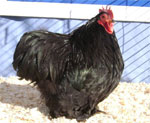
|
Langshan
|
|
Langshans do great as egg layers and make great food birds as well. First time owners are often surrpised with how friendly they are dispute their large size. That can withstand any weather climate.
|
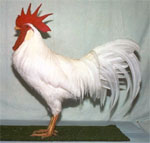
|
Leghorn
|
|
The Leghorn is a master of egg laying, producing upwards of 280 eggs a year. Their ability to be a good meat procution chicken has been overlooked as a result of this.
|
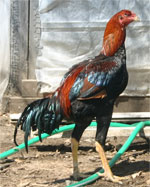
|
Malay
|
|
Malays can stand up to three feet tall and are incredibly strong birds known for their fighting prowess. However, they don't lay often and don't have much meat, so they're primarily ornamental and show birds.
|
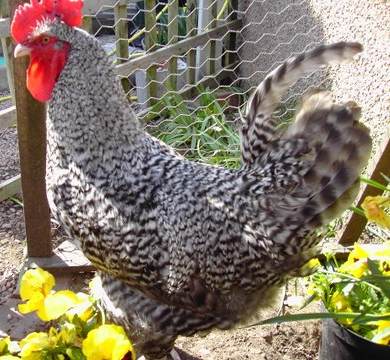
|
Marans
|
|
Marans lay three eggs a week and produce eggs with a very rich dark brown color. Ian Fleming, the creator of James Bond, even made Marans eggs the character's favorite. They also produce delicious meat.
|
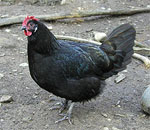
|
Minorca
|
|
Though Minorcas used to have mythical-like egg laying abilities, the current breed has slowed down production just a bit, however not enough to make them anything less than one of the strongest laying breeds.
|
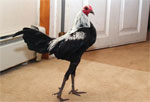
|
Modern Game
|
|
Modern Games are skinny and lengthy, so they aren't good for eggs or meat, but they're great for showing off. They're a challenge to tame, but once they're attached to you they may even offer presents.
|
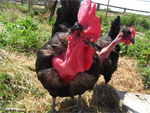
|
Naked Neck
|
|
The Naked Neck breed has no feathers around the neck, hence the name. However, they're excellent dual purpose birds and are very resilient to most diseases, making them a great choice for beginners.
|
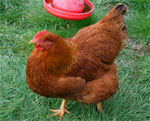
|
New Hampshire Red
|
|
Consistent with eggs and heavy with meat, the New Hampshire Red is truely a utility bird. They're consdiered very tame and friendly with little or no aggressive tendencies when kept with their own breed.
|
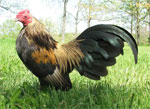
|
Old English Game
|
|
Old English Game are poor layers and poor meat producers, but they're the number one most popular show breed. Just be ready to face tough competition since hudnreds of these birds compete each year.
|
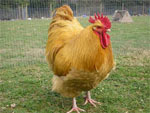
|
Orpington
|
|
Orpingtons can do it all, whether it be laying 200 eggs a year, offering a lot of meat when matured, or being easy to handle and show. These are just a good chicken for all occasion.
|
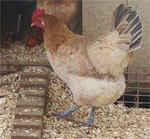
|
Penedesenca
|
|
The Penedesenca is unique in that no other breed can produce eggs as dark as they can. They also make great meat birds, but their unrecognized status makes them difficult to act as show birds.
|
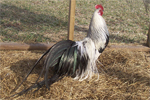
|
Phoenix
|
|
The Phoenix breed is famous for its incredibly long tail, making them wonderful in the show circuit. They aren't, however, very good at anything else and do require a lot of care to keep their tails undamaged.
|
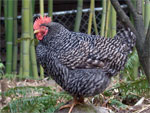
|
Plymouth Rock
|
|
Plymouth Rocks may just be the most popular breed in the US due to theri excellent egg laying and hearty frames that make for a good meal. They're also easy to tame and non-aggresive. What's not to like?
|
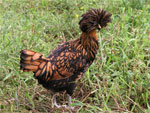
|
Polish
|
|
The Polish breed is best known for their magnificent V-shaped crest, making them great as show birds. They also have a decent egg laying ability, though this isn't as reliable as other breeds.
|
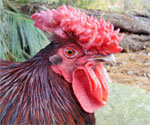
|
Redcap
|
|
Redcaps are best at laying eggs, so that's what their primary purpose should be. They're considered endangered, so meat production isn't an option, and they hate confinement, so showing isn't either.
|
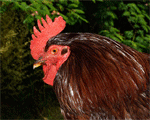
|
Rhode Island Red
|
|
The Rhode Island Red can be used for anything. They're prized for their 220 eggs a year production, but are eharty meat birds and popular in shows. There's nothing this chicken can't do.
|
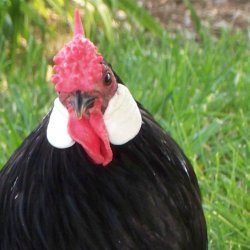
|
Rosecomb
|
|
Rosecombs are a true bantam and as such are used primarily on the show circuit since they don't lay much and aren't large enough for a meal. Expect to see a lot of these if you go to a show.
|
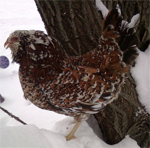
|
Russian Orloff
|
|
Big, strong, and capable of dealing with the harshest winters, the Russian Orloff is a great layer and a great fryer. However, they are considered very endangered, so make sure to breed them frequently.
|
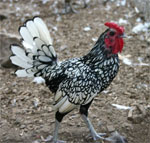
|
Sebright
|
|
The Sebright is a bantam built for the show world. They are very active birds, but they aren't aggressive and aren't very loud, so this is a great chicken for someone needing an easy time.
|
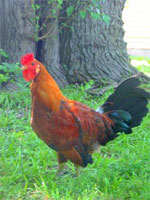
|
Sicilian Buttercup
|
|
The Sicilian Buttercup is classicifed as an egg laying breed despite having poor egg laying abilities. They are most popular as show chicekns, so if you want ane gg layer with a better purpose, these are your bird.
|
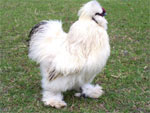
|
Silkie Bantam
|
|
Silkie Bantams look like a little ball of fluff due to theri unique feathers. They are small, as the bantam name suggests, and do not work as anything but a show bird. Still, they're consiered very friendly.
|
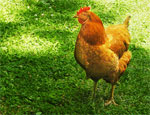
|
Star
|
|
Stars are very special, working as egg layers, meat producers, and excellent show birds. Their best talent may be as a sex link for breeding purposes. If you want specific characteristics in other breeds, use a Star.
|
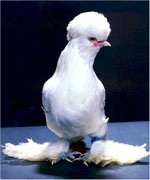
|
Sultan
|
|
The Sultan breed is all about the shows due to their odd feather placement like a turban on theri head and long tufts coming from theri feet. They're also very placid, adding to the reasons for being show birds.
|
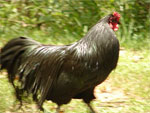
|
Sumatra
|
|
Sumatras are best when they're shown around, but can't really provide you with a decent meal either with eggs or meat. They're prized due to their many feathers, glorious tails, and uniquely colored faces.
|
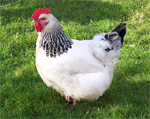
|
Sussex
|
|
The Sussex breed is magnificent as egg layers, able to keep egg production high even through the winter months. They also have quite a following as show birds because of theri easy-going temperament.
|
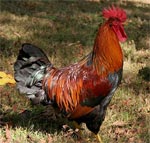
|
Welsummer
|
|
Welsummers are great layers and have a pleasant attitude about everything. When choosing eggs to incubate and breed from, select the lighter-colored eggs as these indicate better laying abilities.
|
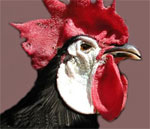
|
White-Faced Black Spanish
|
|
The White-FacedBlack Spanish breed is known for its iconic look with very white faces due to their unnusually long white earlobes. They make great egg layers, but their temperament is all up to debate.
|
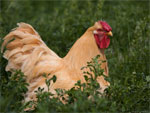
|
Wyandotte
|
|
The Wyandotte looks deceptively large, though that's mostly caused by the feathers. They are great egg layers and considered very friendly and easy to care for, making them good for beginners.
|
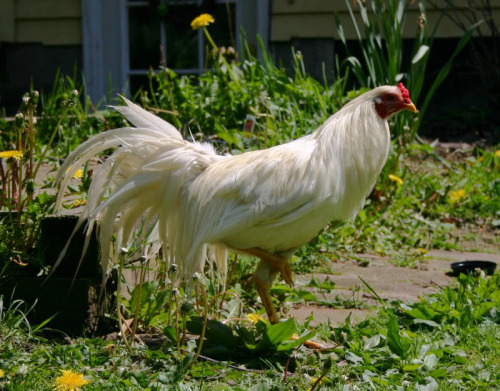
|
Yokohama
|
|
Yokohamas work best as show birds since they don't lay very well and just simply have too good of an appearance to waste. They aren't very friendly though, so they don't do well with humans and other chickens.
|
|
|


























